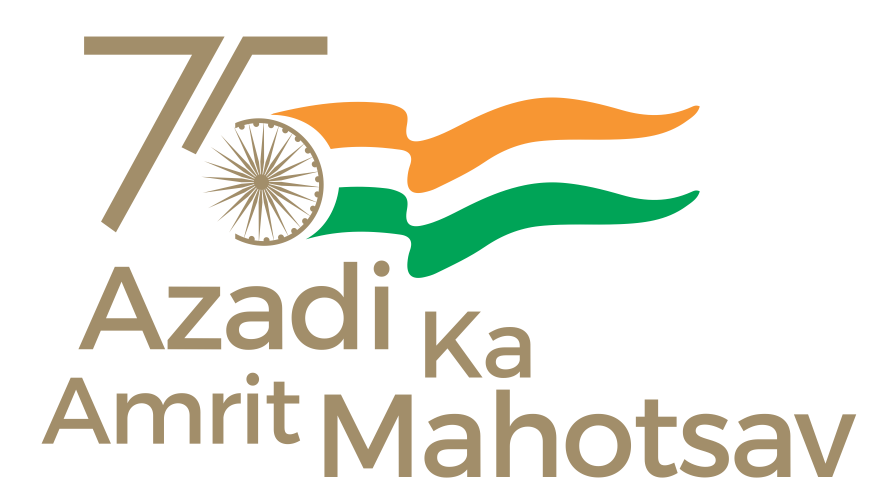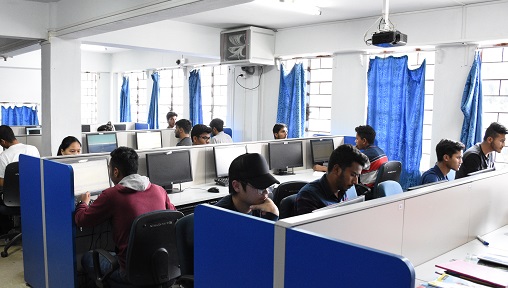



.jpg)

About
The Department of Computer Science & Engineering, NIT Meghalaya offers B. Tech degree in Computer Science and Engineering discipline. This U.G Programme in Computer Science and Engineering is perhaps the most popular Programme in NIT Meghalaya, with an average intake of 30 students per year. The department has adequate facilities to support these teaching activities. It has a well qualified and experienced faculty team. The Computer Science and Engineering department makes all efforts in imparting high quality education to its highly motivated students. One of the aims of this department to play its role of producing Computer Engineers ready to satisfy the needs of the Computer and IT world. The Department is also actively involved in various Research activities.
The department also started its Mtech program from 2014 with an initial intake of 20. There is also a PhD programme under which research scholars are admitted twice a year.
Vision
Attaining global recognition in Computer Science & Engineering education, research and training to meet the growing needs of the industry and society.
Mission
Programme Outcomes (POs)
| PO1 | Engineering knowledge: Apply the knowledge of mathematics, science, engineering fundamentals, and an engineering specialization to the solution of complex engineering problems. |
| PO2 | Problem analysis: Identify, formulate, review research literature, and analyze complex engineering problems reaching substantiated conclusions using first principles of mathematics, natural sciences, and engineering sciences. |
| PO3 | Design/development of solutions: Design solutions for complex engineering problems and design system components or processes that meet the specified needs with appropriate consideration for the public health and safety, and the cultural, societal, and environmental considerations. |
| PO4 | Conduct investigations of complex problems: Use research-based knowledge and research methods including design of experiments, analysis and interpretation of data, and synthesis of the information to provide valid conclusions. |
| PO5 | Modern tool usage: Create, select, and apply appropriate techniques, resources, and modern engineering And IT tools including prediction and modeling to complex engineering activities with an understanding of the limitations. |
| PO6 | The engineer and society: Apply reasoning informed by the contextual knowledge to assess societal, health, safety, legal and cultural issues and the consequent responsibilities relevant to the professional engineering practice. |
| PO7 | Environment and sustainability: Understand the impact of the professional engineering solutions in societal and environmental contexts, and demonstrate the knowledge of, and need for sustainable development. |
| PO8 | Ethics: Apply ethical principles and commit to professional ethics and responsibilities and norms of the engineering practice. |
| PO9 | Individual and team work: Function effectively as an individual, and as a member or leader in diverse teams, and in multidisciplinary settings. |
| PO10 | Communication: Communicate effectively on complex engineering activities with the engineering community and with society at large, such as, being able to comprehend and write effective reports and design documentation, make effective presentations, and give and receive clear instructions. |
| PO11 | Project management and finance: Demonstrate knowledge and understanding of the engineering and management principles and apply these to one’s own work, as a member and leader in a team, to manage projects and in multidisciplinary environments. |
| PO12 | Life-long learning: Recognize the need for, and have the preparation and ability to engage in independent and life-long learning in the broadest context of technological change. |
Program Specific Outcomes (PSOs):
| PSO1 | The ability to understand, analyse and develop solution strategy towards problems in the areas related to algorithms, system software, machine learning, and Artificial Intelligence, web design, big data analytics, and networking for efficient design of computer-based systems of varying complexity. |
| PSO2 | The ability to understand the evolutionary changes in computing, apply standard practices and strategies in software project development using open-ended programming environments to deliver a quality product for business success, real world problems and meet the challenges of the future. |
| PSO3 | The ability to employ modern computer languages, environments, and platforms in creating innovative career paths to be an entrepreneur, lifelong learning and a zest for higher studies and also to act as a good citizen by inculcating in them moral values & ethics. |
Program Educational Objectives (PEOs):
| PEO1 | Apply computer science theory blended with mathematics and engineering to model computing system. |
| PEO2 | Design, implement, test and maintain software systems based on requirement specifications |
| PEO3 | Communicate effectively with team members, engage in applying technologies and lead teams in industry. |
| PEO4 | Assess the computing systems from the view point of quality, security, privacy, cost, utility, etiquette and ethics. |
| PEO5 | Engage in lifelong learning, career enhancement and adapt to changing professional and societal needs. |